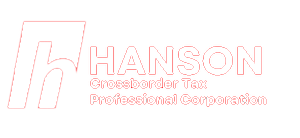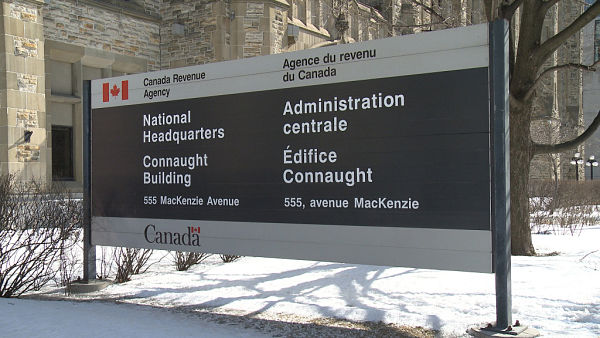If you are incorporated, a partner in a Canadian partnership, self-employed, or have a family member who falls into one of these categories, this letter is for you.
Last week, I sent you an email with some preliminary information on the Canadian Government’s support programs to counter the economic impacts of COVID-19 for various types of taxpayers. Information has been released with regard to wage subsidy programs available to EMPLOYERS. In addition, we now have more details pertaining to a partially forgivable loan of $40,000.
There are two new wage subsidies for EMPLOYERS, and we would like to explain the differences between their eligibilities and applications.
The Temporary Wage Subsidy (TWS) (10% payroll subsidy)
The TWS received passage of Bill C-13 on March 25, 2020 and covers the period from March 18 to June 19, 2020 for eligible employers. No application is needed and the subsidy is available now.
Important points on the TWS include:
- You are registered with a business number and payroll remittance account as at March 18, 2020.
- You are a sole proprietor (who pays a salary to a third party), a partnership, a Canadian controlled private corporation with allocated small business deduction in the prior taxation year (with some exceptions), a non-profit organization, and a registered charity.
- Subsidy is 10% of remuneration and is capped at $1,375/employee (x number of eligible employees employed during the period) and $25,000/employer. The $25,000 limit is not shared with associated corporations.
- Subsidy is claimed by reducing the income tax portion of payroll remittances and can be claimed as a credit at the end of the year.
- Subsidy is TAXABLE to the employer.
The Canada Emergency Wage Subsidy (CEWS) (75% payroll subsidy)
The CEWS has no legislation tabled yet, however, we expect more guidelines to come available soon. This wage subsidy is retroactive and covers the period from March 15 to June 6, 2020 for eligible employers.
Important points on the CEWS include:
- Eligible employers are most business entities, excluding those that are publicly-funded and Canadian corporations controlled by non-residents.
- Eligible employers must have seen a 30% decrease in monthly revenue in March, April and May, 2020 compared to those months in 2019. This is revenue from business carried on in Canada through arm’s-length resources using the employer’s normal accounting method. Revenues from extraordinary items and amounts on account of capital are excluded.
- The subsidy is calculated at 75% of the employee’s pre-COVID weekly remuneration to a maximum of $847/week. Employers are encouraged to pay the remaining 25% of the employee’s earnings. Certain types of remuneration may be excluded.
- There is no overall limit for employers.
- Applications are for the wage periods where monthly sales dropped more than 30%, as follows:
- Eligible March 2020: Wages paid from March 15 to April 11, 2020;
- Eligible April 2020: Wages paid from April 12 to May 9, 2020;
- Eligible May 2020: Wages paid from May 10 to June 6, 2020.
- Application for the subsidy is made via the CRA’s My Business Account portal, which is expected to launch in 3-6 weeks, and employers must reapply each month.
- Subsidy is TAXABLE to employers.
- There are severe penalties for those take advantage of the system.
It’s also important to note that an employer would NOT BE ELIGIBLE to claim the CEWS for remuneration paid to an employee in a week that falls within a four-week period where the employee is eligible for the $2,000 Canada Emergency Response Benefit (CERB). CERB was discussed in our March 31 letter and will be discussed in today’s additional letter.
For employers who qualify for both subsidies (CEW and TWS), any benefit received from TWS would reduce the amount claimed under the CEWS. As CEWS will not be available for at least 3-6 weeks, employers eligible for the TWS may wish to claim it now to improve cash flows.
The Canada Emergency Business Account – $40,000 Loan
The Canadian Government announced the launch of the Canada Emergency Business Account (CEBA), which is expected to open for application on Wednesday, April 8th. The account is intended to ensure that small businesses have access to capital should they need it. The hope is that businesses will be better positioned to return quickly to normal operations.
The $25 billion program provides small businesses and not-for-profits interest-free loans of up to $40,000 to help cover costs while revenues are temporarily reduced. To be eligible, organizations must demonstrate that they paid between $50,000 to $1 million in total payroll in 2019. Repayment of the balance of the loan on or before December 31, 2022 will result in loan forgiveness of 25% (up to $10,000). Small businesses and not-for-profits should contact their financial institution to apply for these loans.
Employer Health Tax and Workplace Safety and Insurance Board Payments
The Ontario government has increased the 2020 Employer Health Tax (EHT) exemption from $490,000 to $1 million and allowed for interest-free deferral of Workplace Safety and Insurance Board (WSIB) payments for six months. The EHT exemption is retroactive to January 1, 2020 and will return to the regular $490,000 exemption on January 1, 2021. The WSIB measure does not represent payment forgiveness. All WSIB payments need to be made by August 31, 2020.
**
Things are changing daily with COVID-19 and its economic fallout, and we are keeping our ears to the ground to bring you the latest information. Please know that HCBT is here to help you through these times, whether that is by assisting you with government programs or planning for life after the pandemic.
If you have any questions about the contents of this missive, please feel free to reach out to me at any time.
Where to find us
4-209 Speers Road
Oakville, ON, L6K 0H5
Canada
Contact Us
Meetings are by appointment only.
Phone: +1 855 640 1730
Local: +1 905 845 1194
Fax: +1 833-203-9641
Email: mail@hcbtax.com




